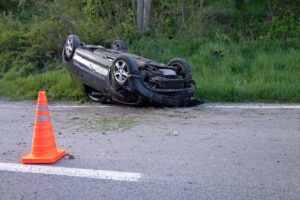In the weeks after a car accident, many people find themselves caught between trying to keep life moving forward and dealing with the reality of new injuries, pain, and a lot of uncertainty. For some, the crash leads to soreness and a few medical visits. For others, injuries are far more serious, changing how they work, move, and care for their families.
No matter how severe your injuries, it’s natural to feel uneasy about the future. Medical bills start arriving. Calls from insurance companies become a constant worry. You might wonder whether symptoms that seemed minor at first could turn into bigger problems.
You deserve answers and support. A Billings car accident lawyer can help guide you through this difficult time and make sure your rights are protected. Knowing what to do after a car accident caused by a negligent driver can help protect both your health and your financial future. No matter how your accident has affected you, there’s a path forward with steps you can take to make sure you’re not left carrying the burden alone.
SCHEDULE FOR A FREE CASE EVALUATION

It’s human nature to brush things off after a crash, especially if you can walk away without obvious injuries. Many people worry about missing work or think they’ll look dramatic if they complain about soreness or headaches. But the human body doesn’t always show injuries right away.
Some of the most common car accident injuries, such as whiplash, concussions, and soft tissue injuries, often develop over several days. You might feel stiff, dizzy, or notice memory problems only after the adrenaline wears off.
If you skipped medical care, make an appointment as soon as possible. Seeing a doctor protects you in two ways. First, it ensures hidden injuries don’t get worse. Second, it creates medical records showing that the accident caused your symptoms. Without those records, insurance companies might argue that your pain comes from something unrelated, or that your injuries aren’t serious.
Don’t hesitate to seek a second opinion if your symptoms persist. Keep notes about how you feel each day. Even mild headaches, sleep problems, or emotional distress can be important to mention to your doctor.
Montana doctors, like those in any state, often see patients who wait too long after a crash. That delay can make both your recovery and your claim much harder. Listen to your body and don’t let fear of medical bills keep you away from care. A lawyer can make sure your full medical costs and related expenses are included in any settlement.

After a crash, you may hear from an insurance adjuster fairly quickly. They often speak in a friendly, reassuring way and say they need information to help process your claim. It might feel natural to explain what happened, especially if you’re eager to resolve things. But sharing details can be one of the costliest mistakes you make after an accident.
Insurance companies have one goal: to pay as little as possible. Anything you tell them might later be used against you. Even a simple comment like, “I’m doing okay,” can be twisted to argue that your injuries aren’t as serious as you claim.
Some tactics adjusters often use to minimize or deny claims include:
Insurance adjusters are well-trained in protecting their company’s bottom line. They know that the sooner they talk to you, the more likely you’ll say something helpful to them and harmful to your case.
If you’re contacted by an adjuster, it’s okay to be polite. Confirm basic details like your name and contact info, but don’t discuss how the accident happened, your injuries, or who might be at fault. Simply say you’re not able to talk about the accident and that you’ll get back to them.
A lawyer can handle all communications with insurance companies for you. They’ll make sure you don’t accidentally weaken your claim and can push back if the insurer tries to delay or deny your rightful compensation.
Many people wait to call a lawyer because they’re unsure whether they “have a case.” Others worry about legal costs or think they can handle insurance negotiations on their own. The reality is that talking to a lawyer sooner rather than later often makes the process smoother and can protect your financial future.
Here’s why early legal help matters:
Most personal injury lawyers work on a contingency fee basis. That means they don’t get paid unless they win your case. This arrangement makes securing top-performing legal representation accessible to everyone, regardless of their financial situation. You’re not risking thousands of dollars upfront to get legal help. Instead, you’re gaining an advocate who’s committed to protecting your best interests.
Even if you’re unsure whether your injuries are serious enough, it’s worth having a free consultation. A short conversation can give you peace of mind and help you avoid costly mistakes.

After a car accident, one of the smartest steps you can take is to become your own best record-keeper. It might feel tedious to collect paperwork and details while you’re trying to recover, but every piece of information can help strengthen your claim and protect your rights. If you’re unable or unsure how to do this, your lawyer can help you.
Lawyers build cases using evidence, and the sooner that evidence is preserved, the better. Memories fade, physical evidence disappears, and paperwork can be lost over time. Here’s how you can help preserve the crucial details your lawyer will need:
Thorough documentation makes a tremendous difference in your personal injury claim. It allows your lawyer to present a clear picture of how the accident has impacted you financially and physically. Keeping evidence organized and accessible gives you leverage during negotiations and helps your legal team fight for your full and fair compensation.
Paperwork and receipts are only part of the story. Car accident injuries affect more than just your bank account; they also disrupt your daily life, your emotional health, and your relationships.
Insurance companies often try to minimize these personal hardships because they’re harder to see and quantify than medical bills. This is where a pain and recovery journal becomes an invaluable tool.
A daily journal lets you track how your injuries affect you in real time. Rather than trying to recall everything months later, you’ll have a clear, detailed record of your experience. Here’s how to keep an effective injury journal:
Insurance companies look for evidence that injuries have truly affected your life. A journal makes your story tangible and credible. It helps your lawyer show that your injuries go beyond the physical, impacting your relationships, mental health, and daily routines.
Think of your journal as your voice when you’re unable to fully explain how deeply this accident has changed your life. It’s a simple step that can significantly increase the value of your claim and provide a sense of control during a stressful time.

Sharing life events online is instinctive and impulsive to many of us, but after a car accident, social media becomes a hidden threat. Insurance companies and defense lawyers often scour Facebook, Instagram, TikTok, and other platforms looking for posts to use against you.
Even a simple selfie or comment like, “Feeling better today!” might be twisted to argue you’re exaggerating your injuries. Pictures from a family gathering, vacation, or even smiling at a birthday party can be taken out of context.
Consider these precautions:
Montana courts, like those in other states, have ruled that social media posts can be discoverable evidence. It’s safer to assume that anything online could eventually be seen by an insurance adjuster or opposing attorney.
The best rule? When in doubt, don’t post.
Deadlines vary by state. For example, in Montana, the statute of limitations for most car accident claims is three years from the accident date. Other states may allow only two years, or even less. Missing these deadlines can mean losing your right to seek compensation.
Often, yes. Many states, including Montana, have comparative fault rules that allow you to recover damages if you share some responsibility, as long as your share of fault is under a certain threshold. However, your settlement amount will likely be reduced.
Not necessarily. Most car accident cases settle out of court. Trials happen only if a fair settlement can’t be reached or there’s a major dispute about fault or damages. Your lawyer’s job is to try to resolve your case efficiently, but they’ll also be ready to go to trial if needed.
There’s no set timeline. Some cases settle in a few months; others can take a year or more, especially if injuries are severe or there’s a dispute about fault. Factors include medical treatment length, insurance negotiations, and court schedules.
No. Politely decline and direct them to your lawyer. The other driver’s insurer doesn’t represent your interests and may look for statements to use against you.
Dealing with the aftermath of a car accident isn’t easy. You’re facing medical bills, missed work, and uncertainty about what comes next. You shouldn’t have to tackle that burden alone. At Yellowstone Law, we bring decades of experience and genuine compassion to every case we handle.
Our personal injury attorneys helped thousands of people throughout Montana secure the compensation they need to heal and move forward. Whether your crash happened in Billings or anywhere else in the state, we’re here to protect your rights and handle the legal heavy lifting so you can focus on recovery.
Let us put our resources and dedication to work for you. Call Yellowstone Law today at (406) 259-9986 or visit contact us online for a free consultation. The path ahead may seem uncertain, but we can help you find a way forward with confidence.